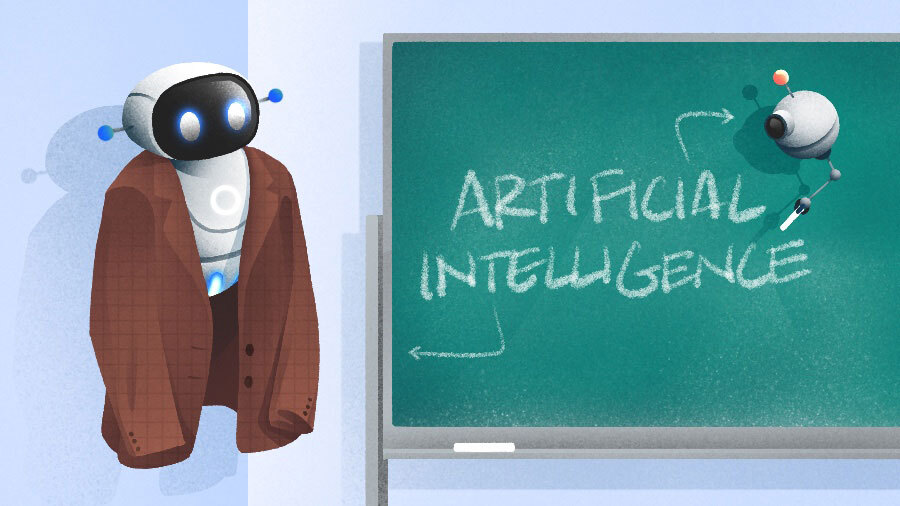By Adi Gozes
Following the debut of ChatGPT, it didn’t take long for AI companies to flood the business landscape. But while AI startups successfully raised $50 billion worth of investment in 2023, there was a clear decline in investments by the end of the year, indicating the initial investment buzz was wearing off.
Rather than casting wide nets of investments over the space, investors are now seeking stronger market fits. To succeed in this new age of AI maturation, entrepreneurs need to focus on building moats — finding unique ways to build a defense perimeter around their offering to fend off competitors or, at the very least, make it difficult to compete with them.
The age of AI proliferation

One of the reasons AI startups and tools proliferated as fast as they did is because it was suddenly much easier to innovate. Startups could build off increasingly accessible models or integrate foundation models into their respective APIs with the help of open-source software. And these startups were successful — a third of all organizations are using generative AI for at least one business function.
However, many of these emerging startups positioned themselves as mere point solutions — “the AI solution for” customer service, marketing, sales development and so on. These siloed alternatives created fragmented processes, yielded low annual contract values, and if they are lucky, bigger players may buy them out in the long run.
So how can AI startups compete?
In May 2023, my firm, Entrée Capital, launched its Generative AI Incubation Program, which received more than 100 applications. The majority of the companies vying to join the program didn’t have unique access to proprietary data and utilized AI for some point solution. Hence, they did not make the cut.
Early-stage AI startups need to dig their moats of competitive advantage.
One method of building a moat is by acquiring access to proprietary customer data that no one else has. This can be achieved by cultivating exclusive client relationships, partnering with an existing company that has a lot of data at its disposal, or providing viral offerings free of charge in exchange for the insightful data users subsequently generate.
Another approach is solving a holistic business problem with an end-to-end solution that can be easily dropped into certain processes and adjacent products.
Using AI to solve one siloed aspect of an industry operation is no longer so attractive. Instead, entrepreneurs should focus on solving a host of big-picture business problems.
Looking forward
While foundational models are currently out of reach for smaller startups with fewer resources, this will likely change as the current investment in infrastructure for AI has yet to reap benefits.
In a few years when AI chip production is in full swing and the cost of training AI models drops significantly in terms of both capital and time, we will see a very different landscape. Larger companies may find themselves competing with smaller players with newfound means to innovate.
Another area of innovation within generative AI that will affect both startups and more established companies is one that is still not fully baked: Conversation-based user interfaces. SaaS platforms are already beginning to invest considerable time, money and resources into such UI development. Simplifying the ways in which humans interact with software has a strong track record of enhancing a company’s competitive edge.
Dig down
Although the AI market received significant investments this past year, AI-driven point solutions aren’t a golden ticket.
By leveraging either proprietary customer data, AI experts, end-to-end solutions, or a combination of the three, entrepreneurs of early-stage companies will be able to find their competitive footing in a crowd of industry players, both big and small.
Adi Gozes is a partner at Entrée Capital investing in startups in the AI, DevOps, DevTools, Data, Security and SaaS domains. She has over a decade of experience in product management, business growth for startups, development of products in multiple areas of technology, including computer vision, DataOps and machine learning. Prior to joining Entrée, Gozes was an investor at Samsung Catalyst Fund. She holds both a bachelor’s degree in computer science and an MBA and graduated magna cum laude from Tel Aviv University.
Illustration: Dom Guzman

Stay up to date with recent funding rounds, acquisitions, and more with the Crunchbase Daily.


![Illustration of "clicking" on an AI brain {Dom Guzman]](https://news.crunchbase.com/wp-content/uploads/AI_Brain-470x352.jpg)
![Illustration of a suitcase stuffed with money. Megafunds [Dom Guzman]](https://news.crunchbase.com/wp-content/uploads/Megafunds-470x352.jpg)

![Illustration of a guy watering plants with a blocked hose - Global [Dom Guzman]](https://news.crunchbase.com/wp-content/uploads/quarterly-global-3-300x168.jpg)
67.1K Followers